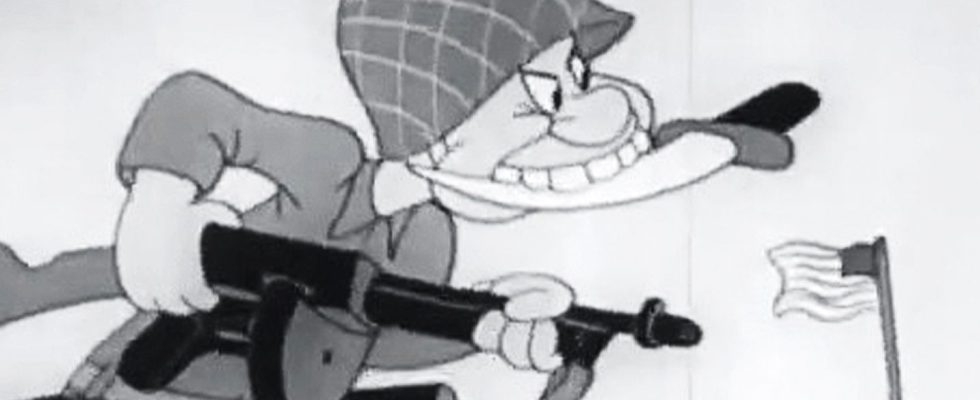Watch the video: World War II – US soldiers were trained with this top secret cartoon.
This World War II cartoon is certainly not intended for children.
The animated series about the titular character “Private Snafu” was shown to members of the US armed forces worldwide as part of film screenings by the “Army-Nany Screen Magazine” every two weeks.
The aim of the demonstrations was to boost the morale of the armed forces and to teach military topics and principles to young soldiers with a low level of education.
In the films, the clumsy hero usually violates military protocol, faces fatal consequences because of his carelessness, and learns a lesson.
An example: He secretly writes a letter to his girlfriend that contains sensitive information – and gets caught in a Japanese ambush.
At the time of the Second World War, the cartoons were subject to military secrecy. The production was carried out under strict safety precautions.
When the series was conceived, the production company Warner Bros. Cartoons was not bound by the then usual guidelines for cartoons and was able to incorporate crude language and offensive humor into the films.
Well-known industry figures were involved in the production of the top-secret films: Most of the stories were written by children’s book author Theodor “Dr. Seuss” Geisel. He is also known for inventing the Christmas-hating “Grinch.” Bugs Bunny voice actor Mel Blanc lends his voice to Private Snafu.
Due to the racist and stereotypical portrayal of enemy soldiers, the short films are often criticized today. The US National Archives says:
“The cartoons often contain negative depictions of the Japanese. While the racist images are difficult to tolerate from a modern perspective, the cartoons attempted to unite soldiers against a common enemy.”
The character’s name “Private Snafu” is a reference to US soldier language. “Snafu” is an abbreviation for “Situation Normal All Fucked Up” – in German: “Situation normal, everything fucked up.”
The cartoon series is said to have been very popular among US soldiers at the time it was broadcast. Today, the films provide a brief insight into the everyday life of the US armed forces during the Second World War.

